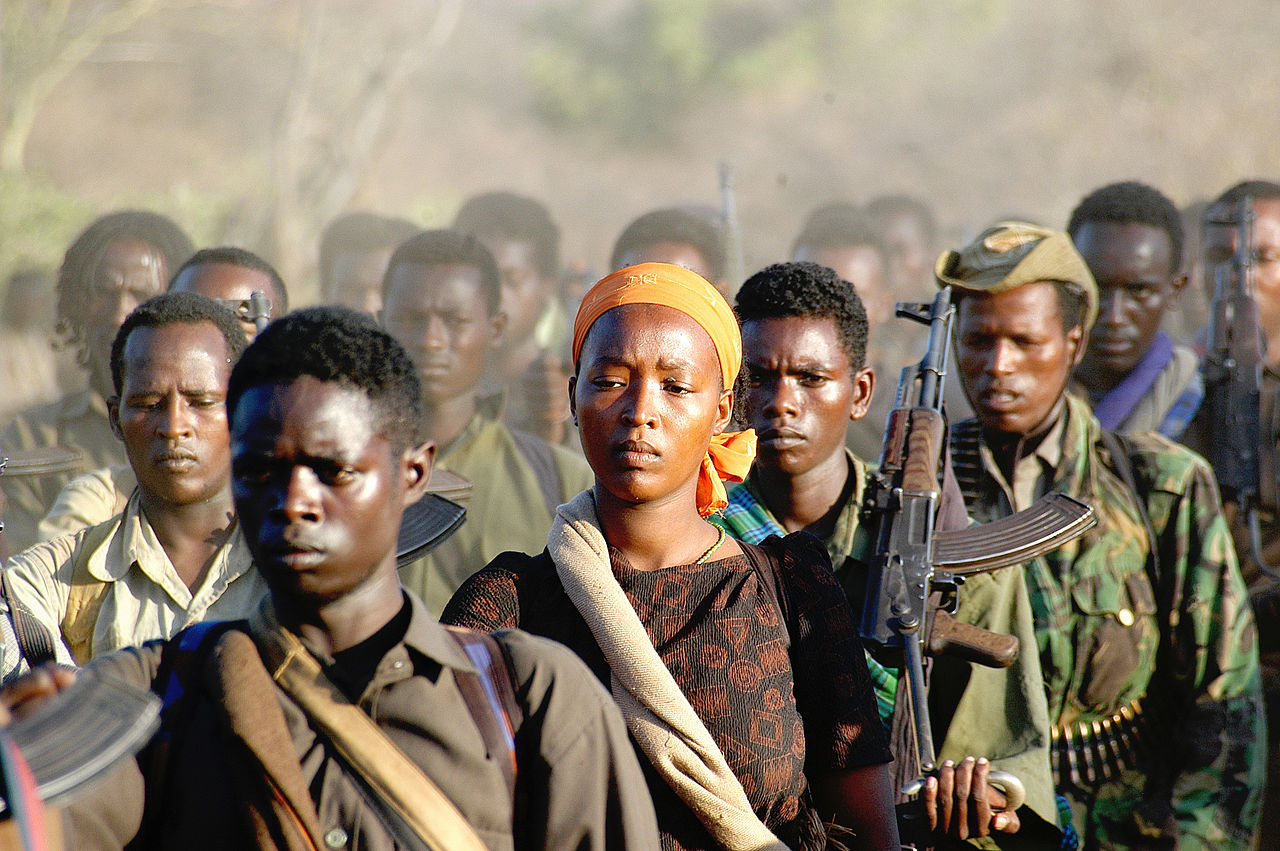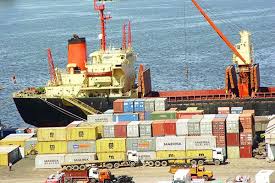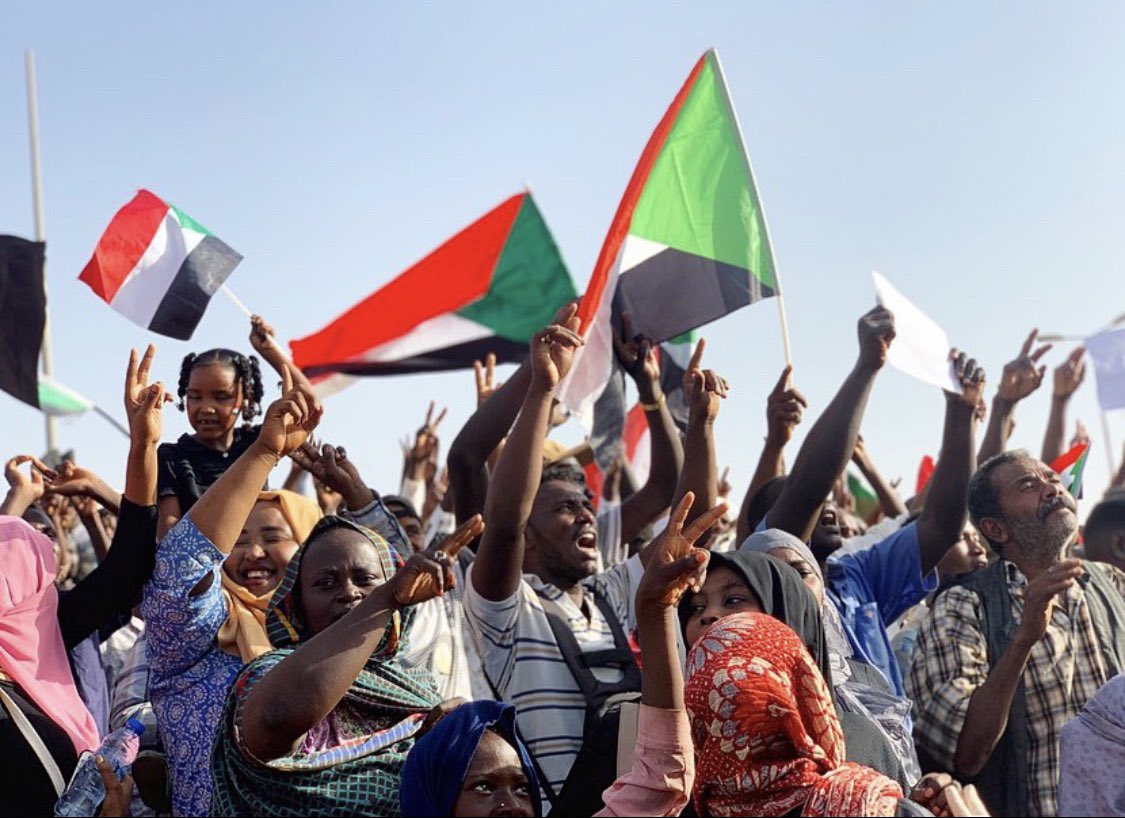loyola llothta
☭☭☭

25 June 2019
Ethiopia’s Failed Coup Attempt Almost Pushed the Country to the Edge of Collapse
By Andrew Korybko
A coup attempt in the historic Ethiopian core region of Amhara was narrowly thwarted even though the state chief was killed and the country’s top military leader was assassinated in a related incident that later took place in the capital, with the failure of this regional regime change effort saving Africa’s second most populous country from civil war and subsequent collapse, at least for now.
The “Ethiopian Gorbachev”
It’s been less than a year and a half since 42-year-old former intelligence official Abiy Ahmed took the reins of Africa’s second-largest country following what amounted to a de-facto “soft coup” in the ruling Ethiopian People’s Revolutionary Democratic Front (EPRDF), after which he rapidly implemented radical domestic and international political reforms that saw several opposition groups delisted from their previous “terrorist” designation and the clinching of a peace accordwith neighboring Eritrea. Ethiopia was in the news for all the right reasons and it looked like the country was on the path to becoming one of Africa’s rising powers, but the “Ethiopian Gorbachev’s” reforms unwittingly opened up the Pandora’s Box of ethno-regionalist tensions over its internal borders, which became more important of an issue than ever before after many came to believe that PM Abiy was sending signals of his eventual intent to decentralize the state.
Domestic Political Context
Africa’s second most populous country is already legally a federation but the former Tigrayan-led faction (Tigray People’s Liberation Front, TPLF) of the ruling party that had previously run Ethiopia prior to PM Abiy’s “soft coup” never allowed this to enter into practice, thus making it a de-facto centralized state in contravention of the constitution. Even so, while the old state of affairs had serious faults, such as its refusal to meet the regional demands of the Oromo people (the largest plurality in the country at roughly a third of the population and strategically concentrated in its central region) which almost pushed it towards civil war before PM Abiy’s appointment, it nevertheless largely kept the peace in the rest of the country through its heavy-handed leadership style. It eventually became apparent, however, that this was backfiring in the Oromia Region, hence the decision to elevate one of that group’s ethnic representatives — PM Abiy — as the head of state in a bid to placate the increasingly violent protesting masses.

OLF forces retreat into Kenya, February 3, 2006 (CC BY-SA 3.0)
Although Ethiopia has moved past the original Oromo Crisis that almost brought it to the brink of civil war, it’s unwittingly triggered several other ones all across the country following the explosion of ethno-regionalist nationalism that was unleashed as a result of PM Abiy’s Gorbachev-like reforms. The internal administrative borders of the East African giant don’t completely correlate to the actual ethnic distribution in the country despite certain groups being contiguous local majorities between states. For example, several well-known fault lines exist between the Oromia and Somali Regions, as well as between the Amhara and Tigray ones too. Minorities in one region, which constitute the majority in the adjacent one and are contiguous to each other across state lines, are afraid that the de-facto implementation of decentralization will make them victims of nationalist policies by the titular nation of their host region. Naturally, those said titular representatives and their supporters believe that the ethnic minorities in their region (which constitute a majority in the adjacent one) are stealing their people’s land, which has given rise to several local conflicts as state control loosened.
Abiy’s Ethiopia = Gorbachev’s USSR?
In spite of PM Abiy’s well-intended reforms, modern-day Ethiopia has become just as much of an ethno-regionalist tinderbox as the former Soviet Union was in the twilight years of Gorbachev’s leadership, with the only thing missing being the spark to set the whole state ablaze.
The TPLF’s home region of Tigray is already largely opposed to PM Abiy’s reformist government as it is, and Ethiopians haven’t forgotten the military finesse of this comparatively minuscule minority (~6% of the total) in being the leading vanguard that made victory against the communist Derg possible during the last civil war. Furthermore, the Amhara — the second-largest plurality at slightly over 25% of the population — have always considered themselves to be the core of the Ethiopian nation and are inclined towards centralization, both de-facto and de-jure (like during the Imperial, Derg, and TPLF-led EPRDF eras). A rebellion in this region could conceivably cut neighboring Tigray off from the central government even more so than it already is, thus laying the ground for another civil war unless the government reversed its radical reforms.
Asaminew’s Coup Attempt In Amhara
The aforementioned context explains some of the strategic reasoning that went into the recent coup attempt, which was led by Amhara security chief Asaminew Tsige, who was released from prison last year after serving nearly a decade behind bars for involvement in a 2009 coup plot. PM Abiy let him and many others free over the past year and a half as a goodwill gesture to promote national reconciliation and signal the seriousness of his reforms, with the idea possibly being that if Asaminew and others were opposed to the TPLF-led EPRDF, then that makes them natural allies of his reformist government. That was a colossal mistake in hindsight because it overlooked the modus operandi of the 2009 coup plot, which Reutersdescribed at the time as “using assassinations and bombings to create enough chaos to get supporters on the streets to topple the government.” In other words, Asaminew planned to wage HybridWar on Ethiopia by using Unconventional Warfare (terrorism, assassinations, bombings, etc.) to catalyze a Color Revolution that he and his cohorts hoped would lead to the reversal of reforms and/or regime change.
That’s exactly what he attempted to do last weekend, when a team of his operatives assassinated Amhara’s regional leader and then an allied bodyguard killed the country’s top military leader shortly thereafter in the capital of Addis Ababa. Shortly before his coup attempt, Asaminew publicly urged his fellow Amhara to take up arms and form militias to defend their region, and it was actually this simmering security threat that the region’s chief was holding a meeting about when he was killed. Had Asaminew and his ilk successfully seized power in Amhara after decapitating Ethiopia’s military leadership through the chief of staff’s assassination, then both that region and Tigray would have been largely outside the control of federal forces and PM Abiy would have been forced to either reverse his reforms and hope that he’d still have enough support within the EPRDF to remain in office afterwards or fight an imminent civil war to restore the central government’s authority. Suffice to say, Ethiopia was almost pushed to the edge of collapse, and the consequences would been catastrophic for this nation of over 100 million people.
Hybrid War Hell In The Horn Of Africa
Apart from the “Weapons of Mass Migration” that would have swept across the region and possibly as far as Europe, this could have also endangered the country’s unity and possibly even resulted in a Horn of Africa version of Ralph Peters’ “Blood Borders“. The American military strategist infamously declared that “ethnic cleansing works”, which would be the inevitable outcome of an ethno-regional civil war that would either “Balkanize” Ethiopia into several “independent” states or at the very least radically revise its internal administrative borders to make them more closely correlate with the country’s post-war ethnic layout. In any case, Ethiopia is the military and diplomatic lynchpin of regional security, so its destabilization would have a ripple effect across the comparatively more fragile neighboring states of Somalia, Sudan, and South Sudan, as well as possibly endangering the peace with Eritrea if the Red Sea state saw a sudden opportunity to finally erase its former Ethiopian overseer from the map once and for all by resuming its support of armed separatist groups in the country.
No Foreign Fingerprints
It should be said at this point that the self-sustaining cycle of Hybrid War unrest that would have been unleashed had Asaminew’s coup attempt in Amhara succeeded wouldn’t have been in the interests of any foreign country. The Gulf States have come to command enormous influence over Ethiopia since PM Abiy’s entrance into office after the UAE helped broker the country’s peace deal with Eritrea, and the Horn of Africa heavyweight is one of China’s closest partners on the continent. Russia and India are looking to invest more in it too, and Addis Ababa has always been very close to Washington when it comes to their shared anti-terrorist security concernsin Somalia. Although the cynical argument can be made that “Balkanizing” Ethiopia would help the US more easily divide and rule this strategic region, the chaotic consequences that it would have produced might have also damaged its own interests by weakening its allies’ “strategic depth”, especially that of the UAE and India vis-a-vis China. It therefore appears that Asaminew’s coup attempt was an entirely indigenous response to PM Abiy’s radical Gorbachev-like reforms and represents the fourth actual or attempted military seizure of power this year after Gabon, Algeria, and Sudan, proving that the “African Spring” continues to roll on.
Concluding Thoughts
Asaminew’s coup attempt in Amhara pushed Ethiopia to the edge of collapse, and although it was ultimately thwarted, it still exposed the country’s main fault lines and showed how vulnerable the Horn of Africa giant is to internal unrest as a result of PM Abiy’s radical Gorbachev-like reforms. The head of state now has to decide whether to reverse them, slow down the pace, or continue full steam ahead, with each choice having their respective benefits and detriments and therefore throwing the young leader on the horns of a massive dilemma. Making matters even more acute is the fact that Ethiopia is supposed to hold its first genuinely free and fair parliamentary electionssometime next year, which will be an historical turning point that will either finally stabilize the country or serve as a trigger event for exacerbating ethno-regionalist tensions. PM Abiy therefore has his hands full with almost as many possibly existential problems as Gorbachev did during the twilight years of the Soviet Union, though that doesn’t necessarily mean that Ethiopia is fated to follow the same path into the dustbin of history.
Article link:
Ethiopia's Failed Coup Attempt Almost Pushed The Country To The Edge Of Collapse - Eurasia Future






